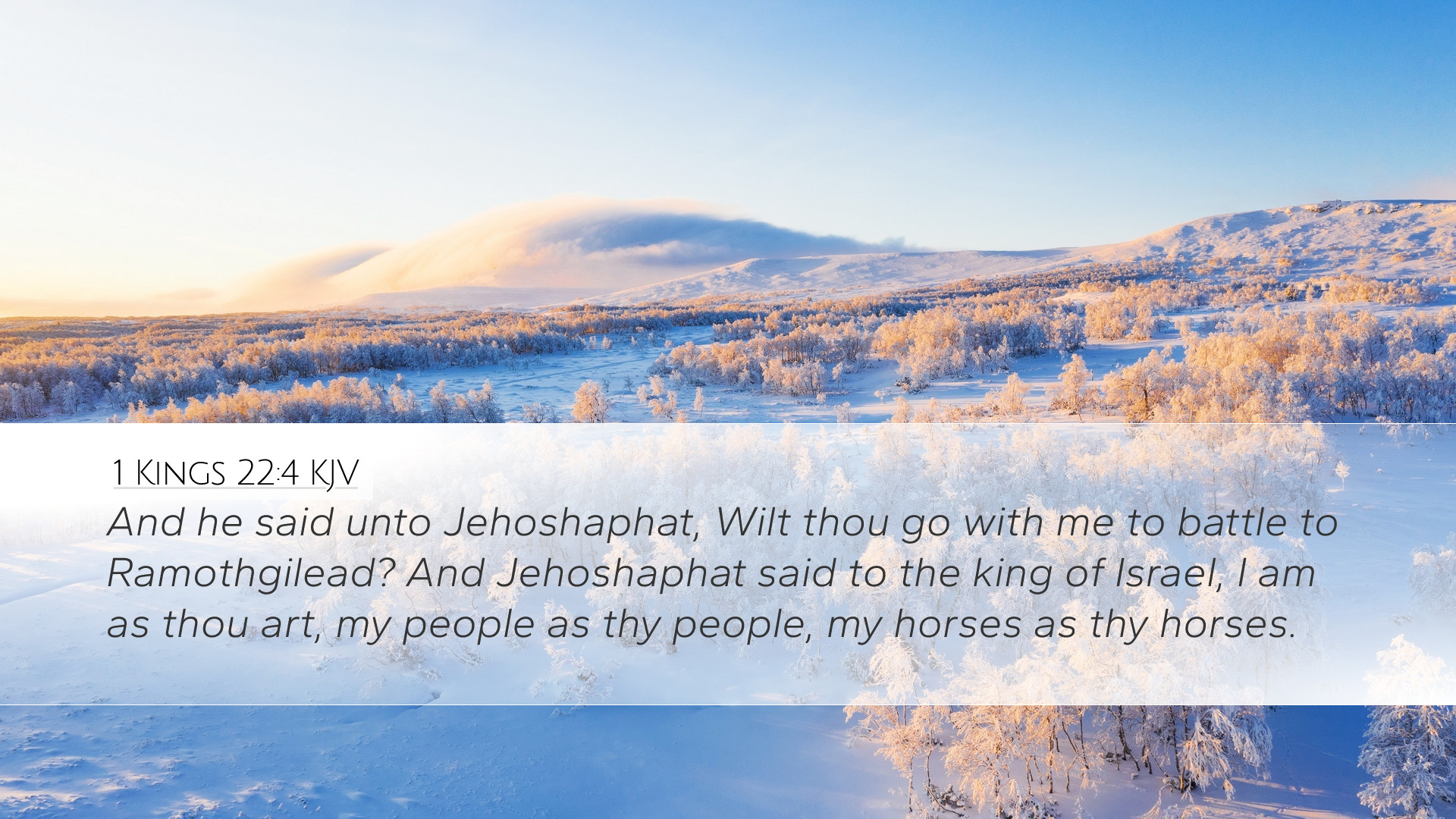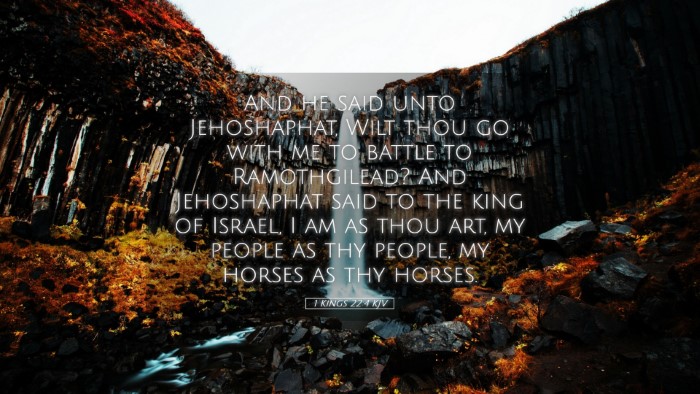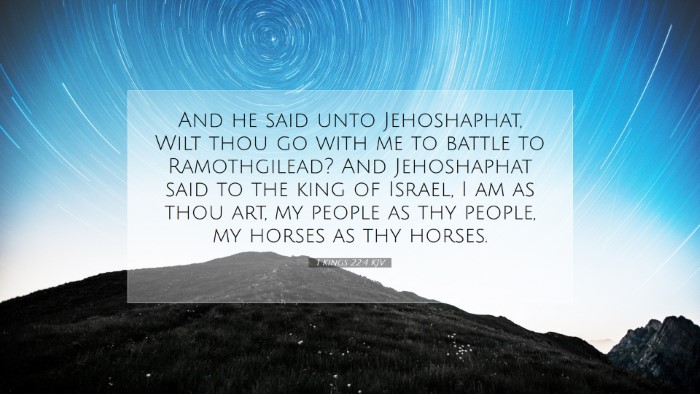Commentary on 1 Kings 22:4
Text of the Verse: "And he said unto Jehoshaphat, Wilt thou go with me to battle to Ramothgilead? And Jehoshaphat said to the king of Israel, I am as thou art, my people as thy people, my horses as thy horses."
Context and Background
This passage occurs in a significant historical context where the leadership of Israel, represented by King Ahab, is seeking military support in a crucial battle against Syria. It reflects the political alliances of the time, specifically between the northern kingdom of Israel and the southern kingdom of Judah. Jehoshaphat, the king of Judah, shows a remarkable aspect of his character by being willing to align with Ahab.
Theological Insights
This verse illustrates the complexities of relationships among the leaders of the divided kingdoms of Israel. Jehoshaphat’s response is indicative of a willingness to collaborate for a common cause, emphasizing unity in purpose while highlighting the necessity of divine guidance in matters of war.
Commentary Excerpts
Insights from Matthew Henry
Matthew Henry emphasizes the inclination of Jehoshaphat to ally with Ahab. He notes that this alliance can be seen as a political maneuver due to the pressing need for military strength against a common enemy. Henry warns of Jehoshaphat's tendency to compromise his principles for the sake of unity, raising concerns about the potential for moral and spiritual decline.
Insights from Albert Barnes
Albert Barnes points out the strategic nature of Jehoshaphat’s response in saying “I am as thou art.” This expression signifies loyalty and solidarity but also raises the question of spiritual alignment. Barnes highlights the importance of seeking God's will before entering into such significant commitments. He suggests that Jehoshaphat's willingness may not adequately reflect the need for discernment when collaborating with those who do not share the same faith in God.
Insights from Adam Clarke
Adam Clarke provides a detailed analysis of the social and military implications of this passage. He points out that Jehoshaphat’s readiness to join Ahab in battle represents a blending of interests that is both practical and problematic. Clarke emphasizes the necessity of prayer and prophetic guidance before embarking on the journey of battle, indicating that human alliances should never supersede divine directives.
Key Themes
- Allegiance and Loyalty: The nature of alliances in the context of political interests.
- Spiritual Discernment: The necessity for spiritual wisdom in the decision-making process.
- Collaboration vs. Compromise: Balance between unity in purpose and maintaining one’s spiritual integrity.
- Inquiry of God's Will: The importance of seeking divine guidance in matters of critical importance.
Application for Today
For contemporary leaders and theologians, this passage serves as a reminder to evaluate the motivations behind alliances and engagements. The principles of sought-after unity must be carefully measured against the standards of faith and righteousness. The inclination to partner with others for pragmatic reasons should always be accompanied by prayerful consideration of God’s intentions and commands.
In the broader context of Christian living, this text encourages believers to strive for unity within the body of Christ while also being vigilant about spiritual fidelity. The story narrates a lesson on the vital need for clarity in hearing God’s voice amidst the clamor of competing interests.
Conclusion
The interactions highlighted in 1 Kings 22:4 illustrate timeless truths about leadership dynamics, the importance of discernment, and the pursuit of God's will. The legacy that Jehoshaphat leaves behind is one of both cooperative spirit and the pressing need for spiritual wisdom.


